Find Help
More Items From Ergsy search
-
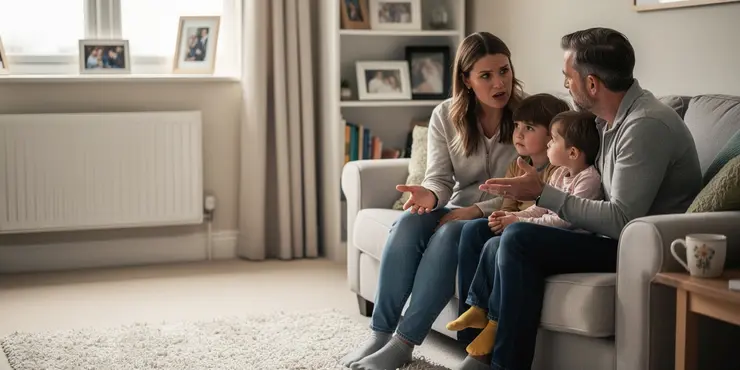
Understanding and Managing Respiratory Illnesses in Families
Relevance: 100%
-
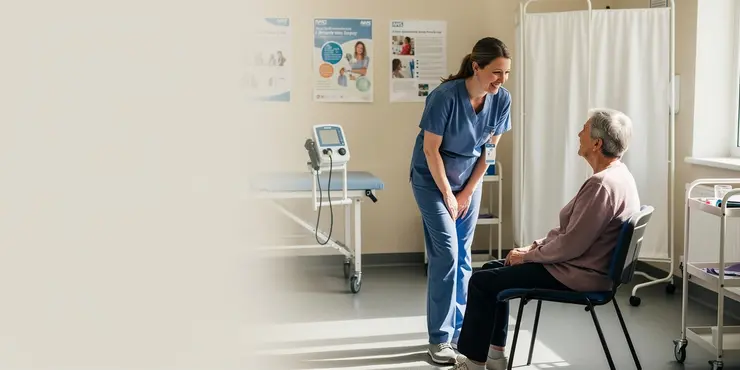
UK Sees Surge in Respiratory Illnesses as Weather Cools
Relevance: 72%
-
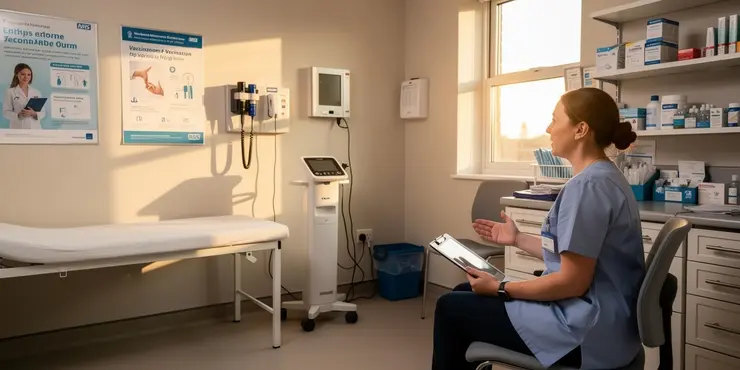
Latest Advice on Managing Respiratory Illnesses During Flu Season
Relevance: 67%
-
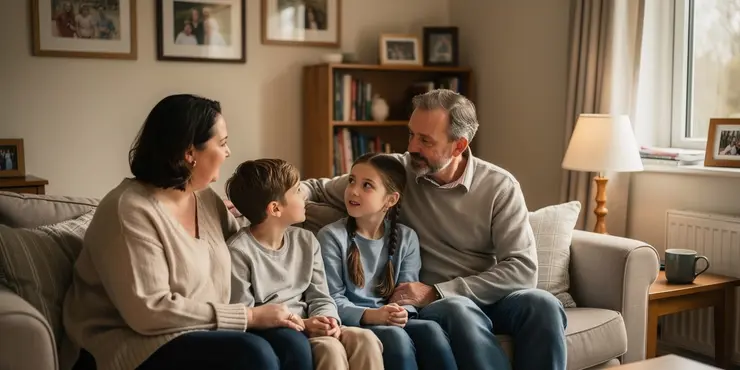
Managing Chronic Illness Within the Family
Relevance: 61%
-
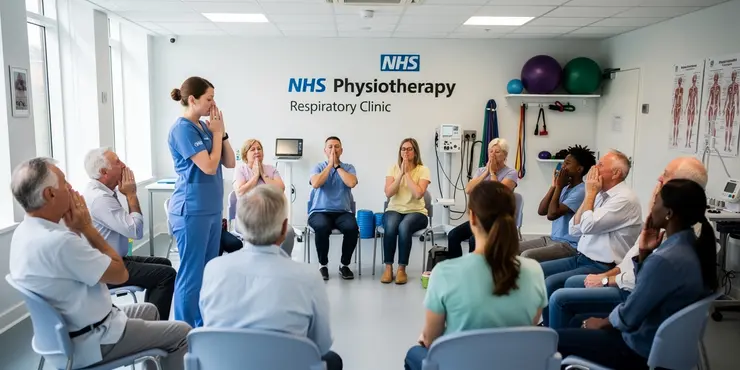
Can air physiotherapy prevent respiratory infections?
Relevance: 45%
-
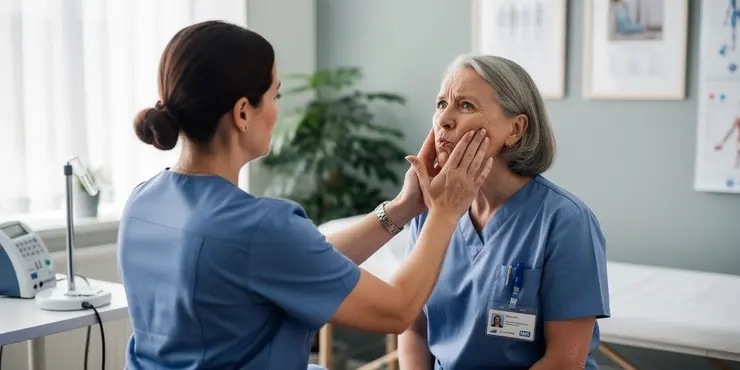
NHSGGC - Respiratory Physiotherapy Service: Self-Management
Relevance: 43%
-
Are there any respiratory benefits linked to using sunbeds?
Relevance: 41%
-
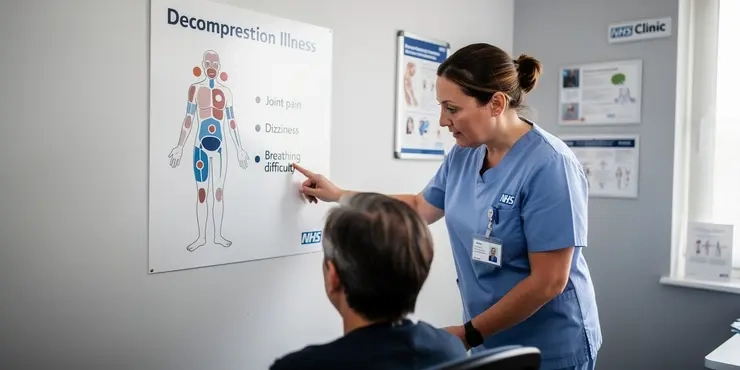
An Introduction to Decompression Illness: Signs & Symptoms”. Dr Roland Armes
Relevance: 38%
-
Is chronic fatigue syndrome a mental illness?
Relevance: 37%
-
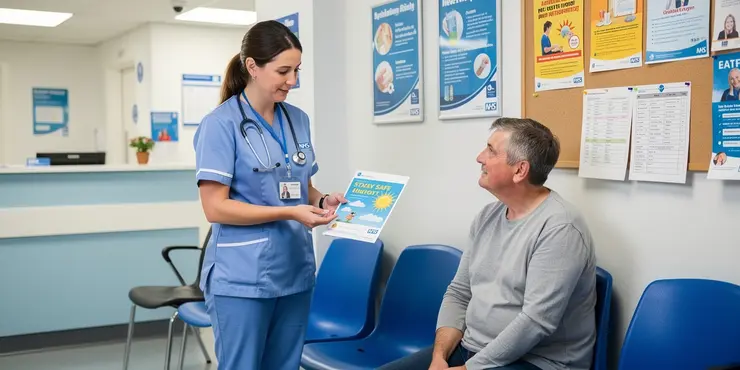
How can I prevent heat-related illnesses?
Relevance: 36%
-
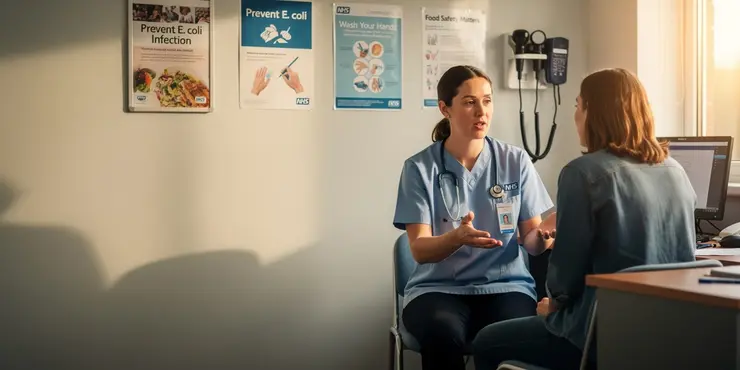
Can E. coli cause illness?
Relevance: 35%
-
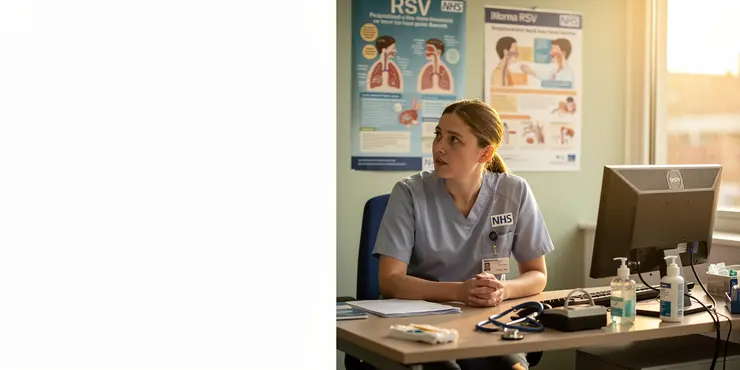
What is RSV (Respiratory Syncytial Virus) or bronchiolitis? UHL NHS Trust
Relevance: 35%
-
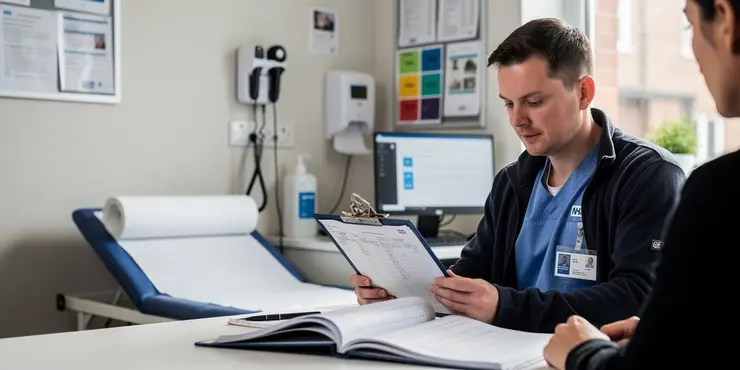
High Air Pollution Levels Linked to Rising Cases of Respiratory Issues
Relevance: 35%
-
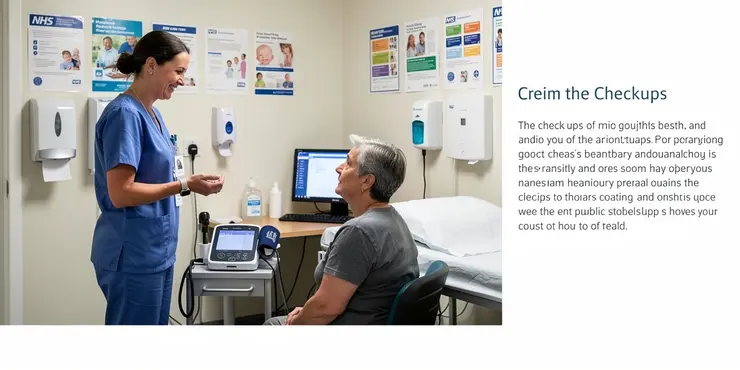
1. Introduction to sepsis and serious illness
Relevance: 35%
-
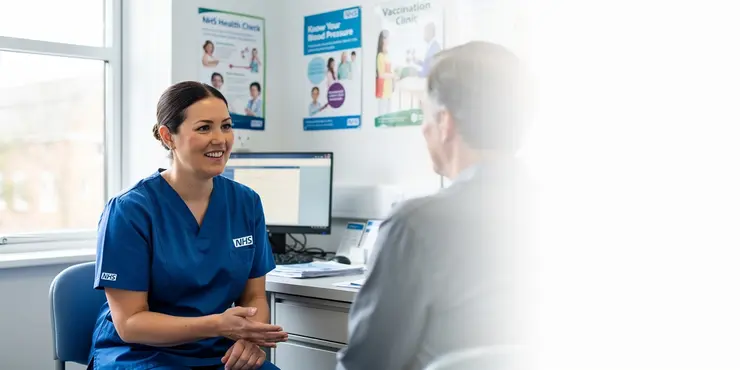
Can H3N2 cause severe illness?
Relevance: 34%
-
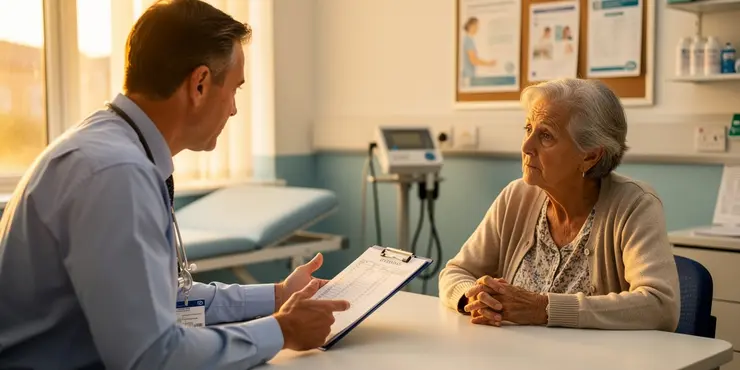
Who is at risk for severe illness from West Nile Virus?
Relevance: 34%
-
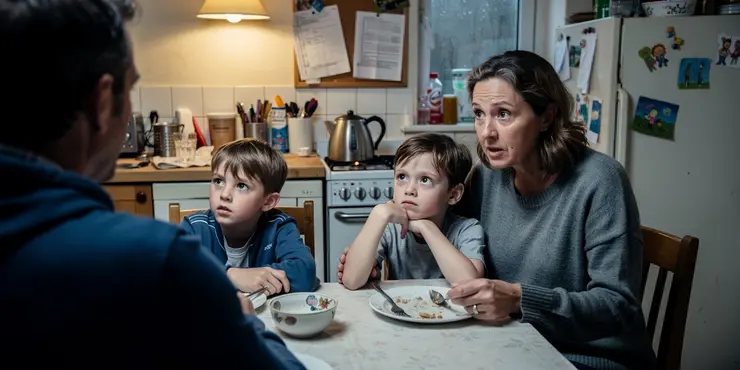
Impact of Rising Living Costs on Family Health
Relevance: 34%
-
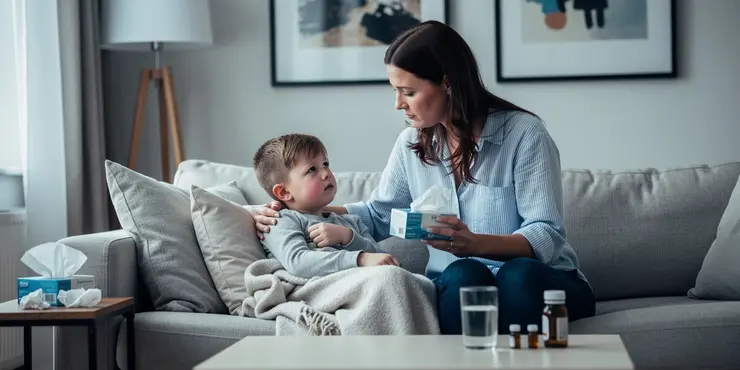
Dealing with Common Childhood Illnesses
Relevance: 32%
-
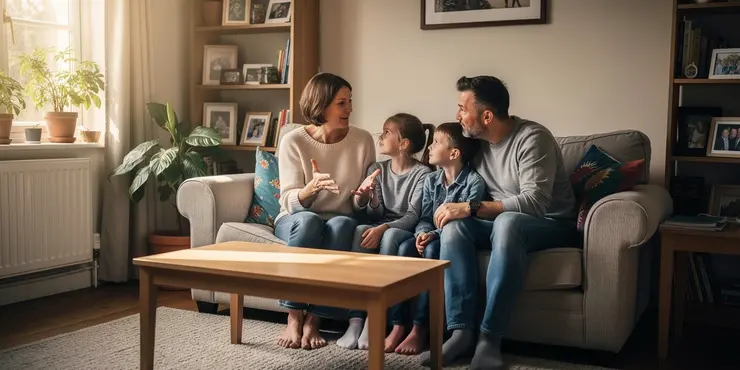
Mental Health Resources for Families
Relevance: 31%
-
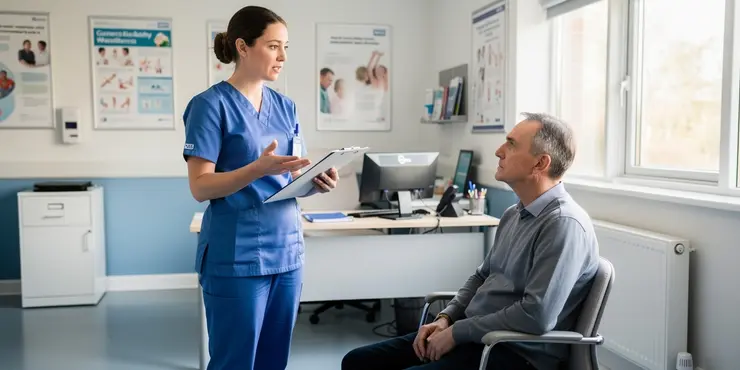
NHS Pensions | How to Claim? | Ill Health, Active & Deferred Members
Relevance: 29%
-

The Benefits of Family Activities
Relevance: 28%
-
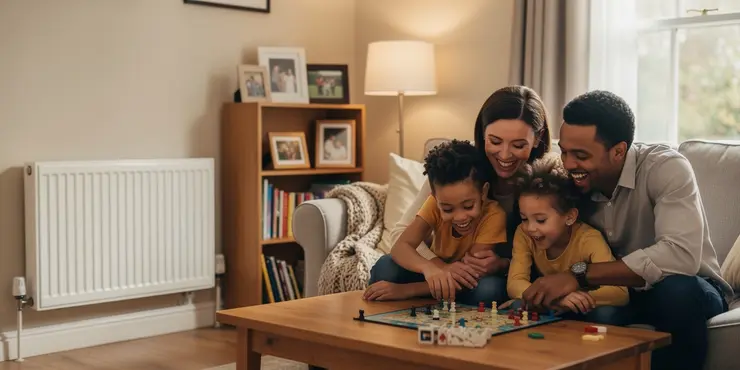
Mental Health Support for Families: Resources and Strategies
Relevance: 28%
-

Mental Health Support for Families: Resources and Helplines
Relevance: 28%
-
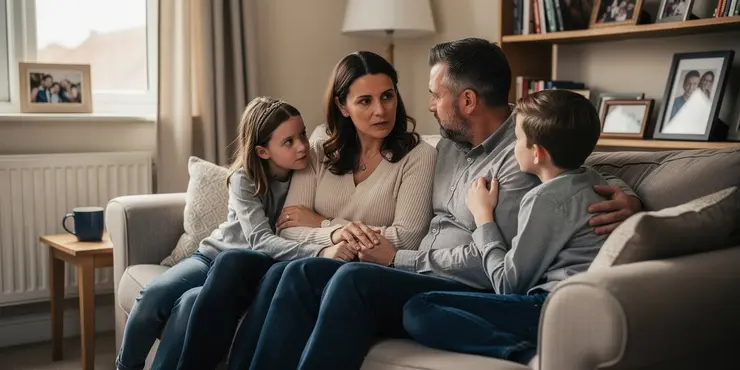
Mental Health Support Resources for Families
Relevance: 27%
-
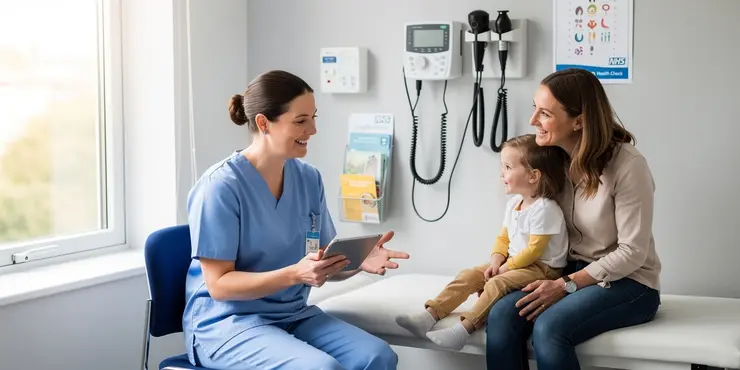
Preventative Care: What Your Family Needs
Relevance: 27%
-
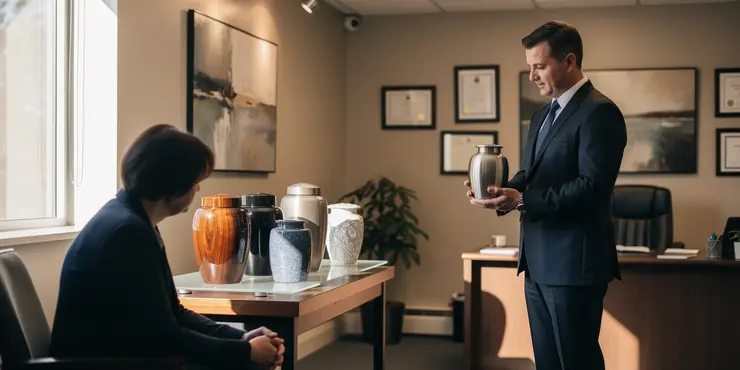
How are ashes returned to the family?
Relevance: 26%
-
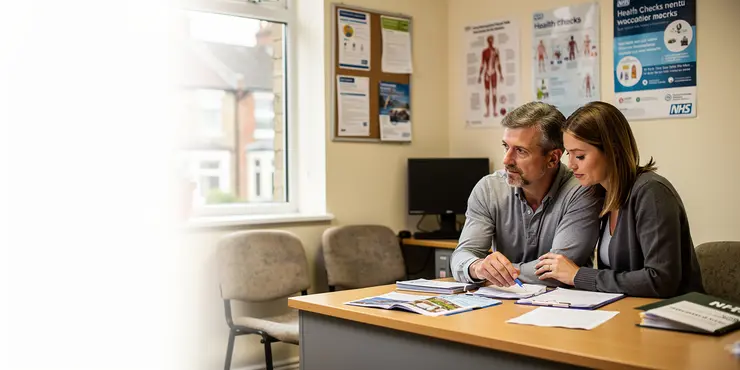
Can I include a family member during my travel for treatment?
Relevance: 26%
-

The Family Court without a Lawyer
Relevance: 26%
-

Healthy Family Lifestyle Tips Post-Pandemic
Relevance: 26%
-
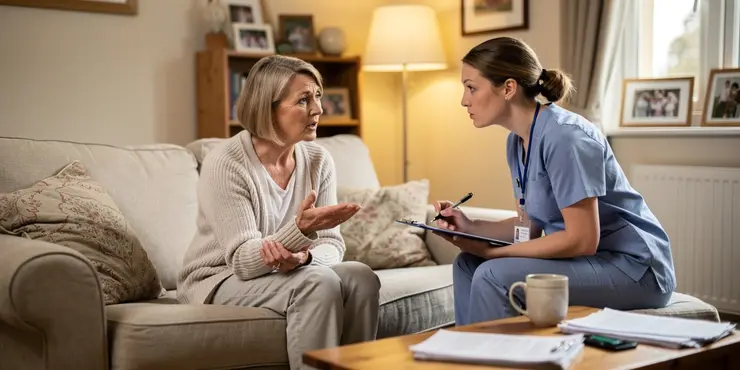
How long will I feel ill with chikungunya?
Relevance: 26%
-
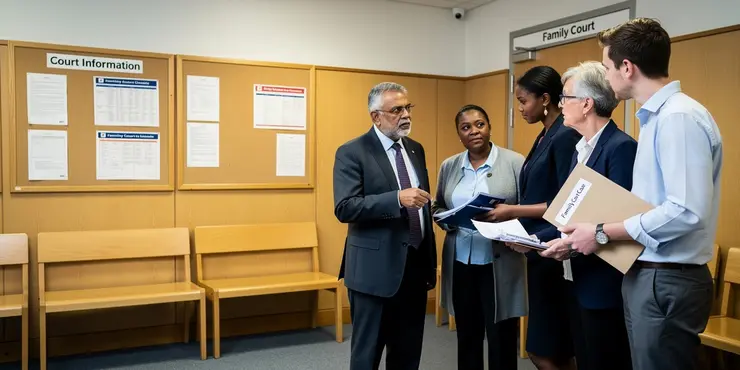
The Family Court without a Lawyer - Video 1 of 3
Relevance: 25%
-
Mental Health Support for Families: Resources and Guidance
Relevance: 25%
-
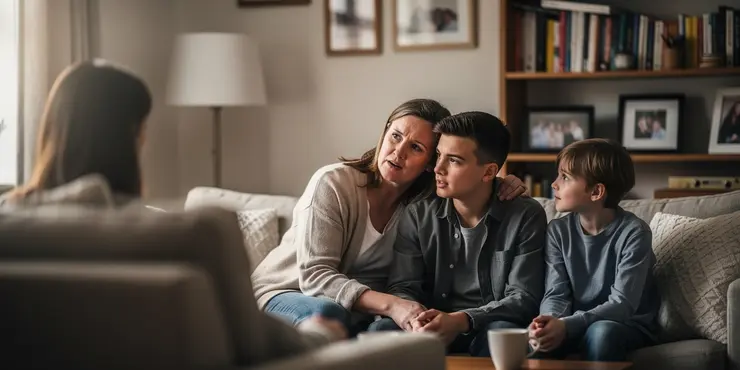
Advancements in Mental Health Resources for Families
Relevance: 25%
-

The Family Court without a Lawyer - Video 3 of 3
Relevance: 25%
-
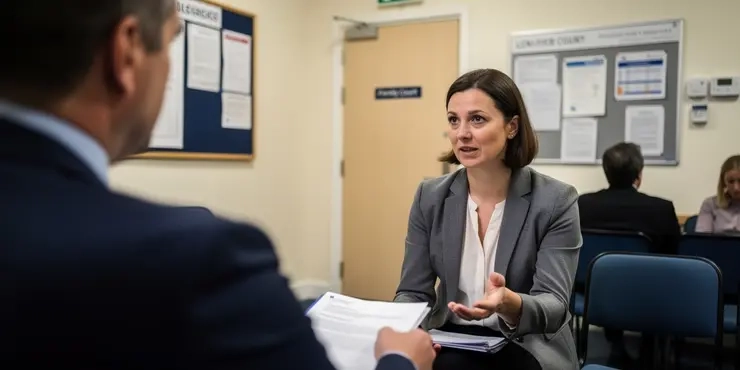
The Family Court without a Lawyer - Video 2 of 3
Relevance: 25%
-

Navigating Post-Brexit Family Law Changes
Relevance: 25%
-
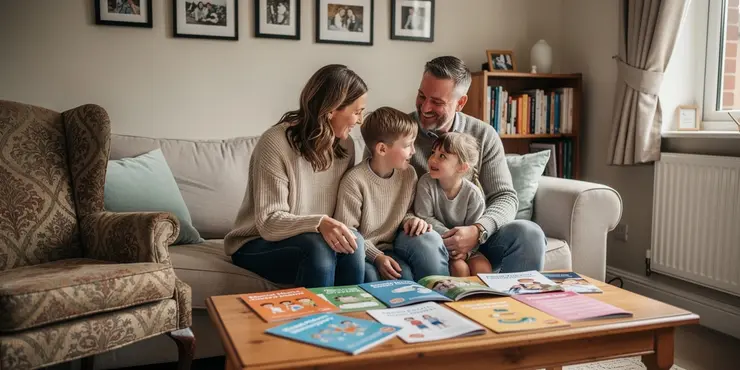
Mental Health Support for Families - Latest Resources and Guidance
Relevance: 24%
-
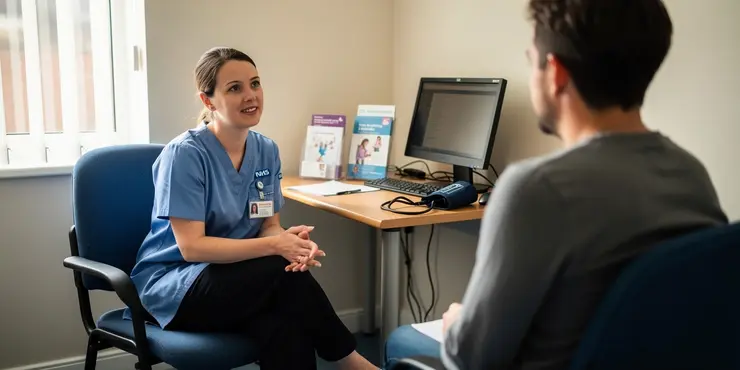
The Different Roles in Sexual Health and Family Planning UK
Relevance: 24%
-
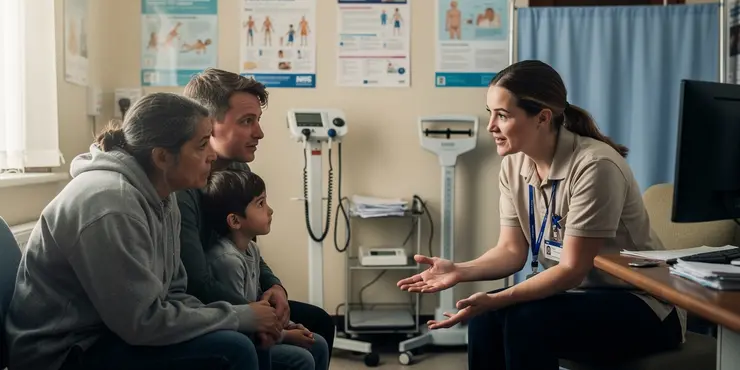
New Government Benefits for Low-Income Families
Relevance: 24%
-
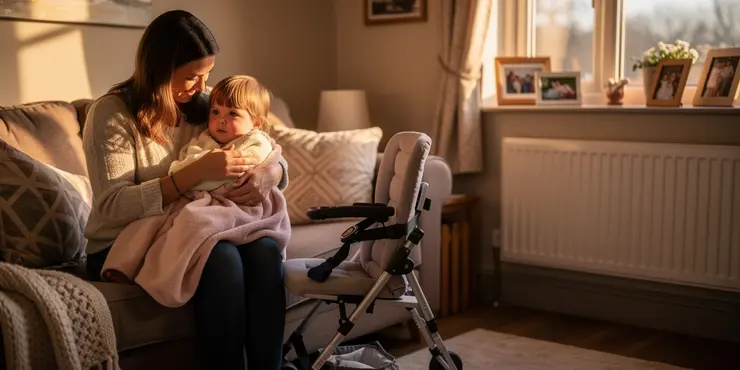
What support is available for families of individuals with PIMD?
Relevance: 24%
Understanding and Managing Respiratory Illnesses in Families
Introduction to Respiratory Illnesses
Respiratory illnesses refer to conditions that affect the lungs and other parts of the respiratory system. Common respiratory illnesses include asthma, chronic obstructive pulmonary disease (COPD), bronchitis, and various infections such as the common cold, influenza, and pneumonia. Understanding these illnesses is crucial to promote better health outcomes, especially for families. In the United Kingdom, respiratory diseases are a major public health concern, causing significant morbidity and healthcare utilization.
Symptoms and Diagnosis
Early recognition of symptoms is vital for effective management of respiratory illnesses. Common symptoms include coughing, wheezing, shortness of breath, chest tightness, and excessive mucus production. Persistent or severe symptoms should prompt a consultation with a healthcare professional. Diagnosis often involves a combination of patient history, physical examination, and diagnostic tests such as chest X-rays, spirometry (lung function tests), and blood tests. Timely and accurate diagnosis helps in formulating an appropriate treatment plan.
Prevention Strategies
Preventing respiratory illnesses involves adopting various strategies. Vaccination is a key preventive measure; the annual flu vaccine and pneumococcal vaccine are widely recommended. Maintaining good hygiene, such as regular handwashing and using tissues when coughing or sneezing, helps reduce the spread of infections. For families, ensuring a smoke-free environment is crucial as second-hand smoke can significantly impact respiratory health. Additionally, addressing indoor air quality by reducing pollutants and allergens can help prevent respiratory issues.
Management and Treatment
Managing respiratory illnesses requires a comprehensive approach that can include medications, lifestyle changes, and environmental modifications. Bronchodilators and corticosteroids are commonly prescribed for conditions like asthma and COPD to reduce inflammation and improve breathing. For infections, antibiotics or antiviral medications may be needed. Lifestyle changes such as regular exercise, maintaining a healthy diet, and avoiding triggers like smoke or pollution are essential components of management. Families should ensure adherence to prescribed treatments and routine follow-ups with healthcare professionals.
Supporting Each Other
Living with a respiratory illness can be challenging not only for the individual affected but for the entire family. Offering emotional support, attending healthcare appointments, and understanding the management plan are important ways families can help one another. Educating all family members about the illness and its management can foster a supportive environment, leading to better adherence to treatment and improved health outcomes.
Understanding and Managing Breathing Sicknesses in Families
What Are Breathing Sicknesses?
Breathing sicknesses are problems that affect your lungs and how you breathe. Some common ones are asthma, chronic obstructive pulmonary disease (COPD), bronchitis, and infections like a cold or flu. It is important to learn about these to stay healthy, especially for families. In the UK, these sicknesses are a big problem and affect many people.
Signs and Finding Out
Knowing the signs of breathing sicknesses helps in taking care of them early. Signs can be coughing, wheezing, having trouble breathing, a tight feeling in your chest, and making a lot of mucus. If these signs do not go away or are very bad, see a doctor. Doctors use your health history and tests like chest X-rays and breathing tests to find out what the problem is. Knowing the problem early helps you get the right treatment.
How to Prevent Sickness
To stop breathing sicknesses, do some simple things. Get your flu shot every year and the pneumonia shot if needed. Wash your hands often and cough or sneeze into a tissue to stop spreading germs. Keep the air in your home clean by not smoking and by having clean air filters. Smoking and smoke can make breathing problems worse.
Taking Care of Sickness
Taking care of breathing sickness means taking medicine and making some changes at home. Medicines called bronchodilators and steroids help with problems like asthma. If you have an infection, you might need antibiotics or other medicines. Exercise, eating healthy, and staying away from smoke and pollution help too. It is important for families to follow the doctor’s plan and go to check-ups.
Helping Each Other
Living with a breathing sickness can be hard for both the person who has it and their family. Families can help by giving support, going to doctor visits together, and learning about the sickness. Understanding what to do will help everyone feel better and keep the breathing sickness under control.
Additional tools and techniques like using reminder apps for medicine or keeping a chart for tracking symptoms can be helpful.
Frequently Asked Questions
What are common respiratory illnesses in children?
Common respiratory illnesses in children include the common cold, influenza, asthma, bronchiolitis, and pneumonia.
How can I tell if my child has a respiratory infection?
Symptoms of a respiratory infection in children may include coughing, difficulty breathing, wheezing, runny or stuffy nose, fever, and fatigue.
When should I seek medical help for my child's respiratory illness?
Seek medical help if your child has difficulty breathing, rapid breathing, blue lips or face, high fever, persistent cough, or if they are unable to drink fluids.
How can respiratory illnesses be prevented in families?
Prevent respiratory illnesses by encouraging frequent hand washing, avoiding close contact with sick individuals, ensuring vaccinations are up to date, and maintaining a healthy lifestyle.
What are the best ways to manage a child's asthma?
Manage asthma by following the asthma action plan, using prescribed medications, avoiding asthma triggers, and regular check-ups with the healthcare provider.
Can my child go to school with a respiratory illness?
Your child should stay home from school if they have a fever, severe cough, difficulty breathing, or are too unwell to participate in normal activities.
What over-the-counter medications can help with respiratory symptoms?
Over-the-counter medications such as paracetamol or ibuprofen can help reduce fever and pain, while saline nasal sprays and decongestants may relieve nasal congestion.
What should I do if my child has a persistent cough?
If your child has a persistent cough lasting more than three weeks, consult a healthcare provider to rule out any underlying conditions such as asthma, allergies, or a more serious infection.
How can I improve indoor air quality to help with respiratory illnesses?
Improve indoor air quality by reducing exposure to smoke, using air purifiers, keeping your home clean and dust-free, and ensuring proper ventilation.
Are there any natural remedies for managing respiratory illnesses?
Natural remedies such as honey for cough relief (for children over one year old), steam inhalation, and saline nasal washes can help manage symptoms, but always consult with a healthcare provider first.
How long does it typically take for a respiratory infection to resolve?
Most respiratory infections resolve within 7-10 days, though a persistent cough can last up to three weeks. Severe infections like pneumonia may take longer and require medical treatment.
Can a humidifier help with respiratory symptoms?
Yes, a humidifier can add moisture to the air, which may help soothe dry or irritated airways and ease breathing.
What dietary changes can support respiratory health?
Supporting respiratory health with a diet rich in fruits, vegetables, whole grains, lean proteins, and staying hydrated can help maintain overall health and support the immune system.
What should I do if my child has difficulty breathing?
If your child has difficulty breathing, seek immediate medical attention by calling emergency services or taking them to the nearest A&E department.
How can vaccinations help prevent respiratory illnesses?
Vaccinations, such as the flu vaccine and pneumococcal vaccine, help protect against common respiratory infections and reduce the risk of severe illness.
What breathing problems do children often get?
Here are some breathing problems kids might have: - **Colds:** Colds can make it hard to breathe. - **Asthma:** Asthma can make your chest feel tight and hard to breathe. - **Flu:** The flu can cause a stuffy nose and coughing. Helpful tips: - Look at pictures about these illnesses. - Talk with someone if you have questions. - Use easy words to explain how you feel. These can help you understand better!Kids often get sick with breathing problems. These are things like a cold, the flu, asthma, bronchiolitis, and pneumonia.
How do I know if my child is sick with a breathing problem?
It's important to look for signs that your child might have a problem with their breathing. Here are some simple steps to help:
- Does your child have a cough that doesn't stop?
- Is your child breathing faster than normal?
- Is your child making a whistling sound when they breathe?
- Does your child have a runny or stuffy nose?
- Is your child saying they have a sore throat?
- Is your child feeling tired more than usual?
If you think your child has any of these signs, it might be a good idea to talk to a doctor.
Here are things you can do to help your child:
- Make sure your child drinks plenty of water.
- Keep your child warm and comfortable.
- Use a humidifier to make the air less dry.
- Let your child rest a lot.
Remember, you know your child best. If you are worried, it’s okay to ask for help.
When children have a chest infection, they might:
- Have a cough.
- Find it hard to breathe.
- Make a whistling sound when they breathe.
- Have a runny or blocked nose.
- Feel very hot.
- Feel very tired.
Helpful tip: If your child is having trouble breathing, call a doctor right away. You can also use a humidifier to help them breathe more easily.
When should I get a doctor for my child's breathing sickness?
If your child is sick and having trouble breathing, you should call a doctor. Look for these things:
- Your child is breathing very fast or using extra muscles to breathe.
- Your child is making noises when breathing, like wheezing or grunting.
- Your child’s lips or face look blue or very pale.
- Your child is very sleepy or hard to wake up.
- Your child has a fever that won’t go away.
If you see any of these signs, call a doctor or go to the hospital right away. It is important to help your child feel better.
Some things that can help your child breathe easier:
- Make sure your child drinks a lot of water.
- Use a humidifier to keep the air moist.
- Help your child sit up or raise their head when sleeping.
If you are worried or unsure, it is always okay to ask a doctor for help.
Get a doctor if your child has trouble breathing, breathing very fast, has blue lips or face, a high fever, keeps coughing, or cannot drink.
How can families stop getting sick with breathing problems?
Families can do some simple things to stay healthy:
- Wash hands often with soap and water.
- Keep your home clean and tidy.
- Open windows to let fresh air in.
- Get everyone in the family vaccinated.
- Stay away from people who are sick.
- Eat healthy food and drink lots of water.
Drawing pictures or making a chart can help remember these tips. You can also use apps or reminder notes to check if everyone is following the steps.
To stop getting sick with breathing problems, wash your hands a lot. Stay away from people who are sick. Get all your shots from the doctor. Eat healthy food and move your body to stay healthy.
How can you help a child with asthma?
Here are some simple ways to help a child who has asthma:
- Visit the doctor to get the right medicine.
- Use the inhaler as the doctor says.
- Stay away from things that make asthma worse, like smoke or pollen.
- Make sure the child can breathe okay by using a peak flow meter. This is a tool that shows how well their lungs are working.
- Learn the signs that an asthma attack might be coming, like coughing or feeling tight in the chest.
- Have a plan for what to do if the child has an asthma attack.
If it's hard to read, ask a grown-up or teacher to help. There are also apps and tools that can read text out loud, which can be very helpful.
Take care of your asthma by doing these things: follow the plan your doctor gives you, take your medicine, stay away from things that make your asthma worse, and visit your doctor often.
Can my child go to school if they have a cough or cold?
Your child should stay home from school if:
- They have a fever.
- They have a bad cough.
- They find it hard to breathe.
- They are too sick to join in normal activities.
You can use a thermometer to check for fever. Support them with rest and fluids.
What medicines from the shop can help if your breathing is bad?
Do you have a cough or stuffy nose? You can buy medicines at the shop that might help. They are called over-the-counter medicines. This means you don't need a doctor to give you a prescription.
Here are some medicines that can help:
- Cough syrup - Helps stop coughing.
- Nasal spray - Makes it easier to breathe if your nose is blocked.
- Decongestant tablets - Helps clear a stuffy nose.
It's important to read the instructions on the box. If you are not sure, ask someone for help. You can also use picture charts or read aloud tools to understand better.
You can use medicine from the shop, like paracetamol or ibuprofen, to help with fever and pain. Nose sprays with salt water or special medicines for stuffy noses can help you breathe easier.
What can I do if my child keeps coughing?
If your child won't stop coughing, here are some steps you can take:
- Make sure your child drinks lots of water. This can help clear their throat.
- If the cough doesn’t go away, it's a good idea to see a doctor.
- You can also try a warm bath. The steam might help your child feel better.
- Keep your child away from smoke or other things that might irritate their throat.
If you find it hard to remember these steps, you could write them down or ask someone to help you.
If your child has a cough that won't go away for more than three weeks, talk to a doctor. The doctor can check to see if your child might have asthma, allergies, or another illness.
How can I make the air inside better for people with breathing problems?
- Keep windows open when you can to let fresh air in.
- Use air purifiers to clean the air inside.
- Don't smoke inside the house.
- Keep the house clean to get rid of dust.
- Use fans in the kitchen and bathroom to blow smells and steam away.
- Choose safe cleaning products that don’t have strong smells.
- Try putting plants inside to help clean the air.
To make the air in your home better: stay away from smoke, use machines that clean the air, keep your home clean and free from dust, and let fresh air in by opening windows.
Can nature help breathe better when sick?
There are natural ways to help if you have a cough. You can try honey, but only if you are older than one year. Breathing in steam can also help, and so can washing your nose with salty water. But always talk to a doctor first.
How long does it take to get better from a lung infection?
When you get a lung infection, you might feel sick. It usually takes about 1 to 3 weeks to feel better.
The time can be different for everyone. Here are some tips to help you get better:
- Rest a lot and sleep well.
- Drink plenty of water.
- Eat healthy food.
- Follow the doctor’s advice.
- Take medicine if the doctor gives you any.
If it takes longer than 3 weeks, or if you feel worse, tell a doctor!
Most coughs and colds get better in 7 to 10 days. Sometimes, a cough can last for 3 weeks. If you have a bad chest infection, like pneumonia, it can take longer to feel better. You might need to see a doctor.
Can a humidifier help with breathing problems?
A humidifier puts moisture (water) into the air. Breathing in moist air can sometimes help make it easier to breathe. This can be helpful if you have a cold, cough, or if the air is very dry.
If you have breathing problems, you can try using a humidifier in your home to see if it helps. Make sure to keep the humidifier clean to stop germs from growing in it.
Ask an adult if you need help with the humidifier. You can also talk to a doctor or nurse for more advice.
Yes, a humidifier can put water in the air. This can help if your throat is dry or itchy, and it might help you breathe better.
Here are some things that can help while reading:
- Ask someone to read with you and talk about what you read.
- Use a ruler or your finger to keep your place while reading.
- Pause and think about each sentence before going to the next one.
How can changing what you eat help you breathe better?
Eating the right foods can help your lungs stay strong. This can make it easier for you to breathe. Try eating more fruits and vegetables. They are good for your body and can help your lungs.
Drink enough water every day. Water helps keep your lungs clean and healthy.
Avoid foods that are bad for your lungs, like junk food or things with a lot of sugar.
Do you need help? You can ask a doctor or a dietitian. They know about healthy foods.
Eating healthy foods can help you breathe better and stay well. Try to eat lots of fruits and veggies, whole grains like oats or rice, and lean meats like chicken or fish. Also, drink plenty of water. These things keep your body strong and help you not get sick.
If reading is hard, you can try using pictures or videos to help understand. You can also ask someone to read with you and talk about what the sentences mean.
What to Do if Your Child Can't Breathe Well
If your child is having trouble breathing, get help right away. Call emergency services or go to the nearest hospital emergency room (often called A&E).
How do vaccines stop you from getting sick in your lungs?
Vaccines are like a shield for your body. They keep you from getting really sick. Some germs can make your breathing hard. These germs get in your lungs. Vaccines teach your body to fight these germs.
Getting a vaccine is easy. You might feel a small pinch. But it helps you stay healthy. Vaccines are strong helpers. They work to keep you well.
Here's a tip: Talk with a doctor or nurse. They can tell you more about vaccines.
Try some tools: Watch videos with pictures about vaccines. Or, use apps that read text aloud for you. These can help you learn better.
Vaccines, like the flu shot and pneumococcal shot, help stop you from getting sick with infections in your lungs and breathing. They make it less likely for you to get very sick.
If you find reading hard, try using tools like audiobooks or reading apps that read out loud to you. They can help a lot!
Useful Links
This website offers general information and is not a substitute for professional advice.
Always seek guidance from qualified professionals.
If you have any medical concerns or need urgent help, contact a healthcare professional or emergency services immediately.
Some of this content was generated with AI assistance. We’ve done our best to keep it accurate, helpful, and human-friendly.
- Ergsy carfully checks the information in the videos we provide here.
- Videos shown by Youtube after a video has completed, have NOT been reviewed by ERGSY.
- To view, click the arrow in centre of video.
- Most of the videos you find here will have subtitles and/or closed captions available.
- You may need to turn these on, and choose your preferred language.
- Go to the video you'd like to watch.
- If closed captions (CC) are available, settings will be visible on the bottom right of the video player.
- To turn on Captions, click settings .
- To turn off Captions, click settings again.
More Items From Ergsy search
-

Understanding and Managing Respiratory Illnesses in Families
Relevance: 100%
-

UK Sees Surge in Respiratory Illnesses as Weather Cools
Relevance: 72%
-

Latest Advice on Managing Respiratory Illnesses During Flu Season
Relevance: 67%
-

Managing Chronic Illness Within the Family
Relevance: 61%
-

Can air physiotherapy prevent respiratory infections?
Relevance: 45%
-

NHSGGC - Respiratory Physiotherapy Service: Self-Management
Relevance: 43%
-
Are there any respiratory benefits linked to using sunbeds?
Relevance: 41%
-

An Introduction to Decompression Illness: Signs & Symptoms”. Dr Roland Armes
Relevance: 38%
-
Is chronic fatigue syndrome a mental illness?
Relevance: 37%
-

How can I prevent heat-related illnesses?
Relevance: 36%
-

Can E. coli cause illness?
Relevance: 35%
-

What is RSV (Respiratory Syncytial Virus) or bronchiolitis? UHL NHS Trust
Relevance: 35%
-

High Air Pollution Levels Linked to Rising Cases of Respiratory Issues
Relevance: 35%
-

1. Introduction to sepsis and serious illness
Relevance: 35%
-

Can H3N2 cause severe illness?
Relevance: 34%
-

Who is at risk for severe illness from West Nile Virus?
Relevance: 34%
-

Impact of Rising Living Costs on Family Health
Relevance: 34%
-

Dealing with Common Childhood Illnesses
Relevance: 32%
-

Mental Health Resources for Families
Relevance: 31%
-

NHS Pensions | How to Claim? | Ill Health, Active & Deferred Members
Relevance: 29%
-

The Benefits of Family Activities
Relevance: 28%
-

Mental Health Support for Families: Resources and Strategies
Relevance: 28%
-

Mental Health Support for Families: Resources and Helplines
Relevance: 28%
-

Mental Health Support Resources for Families
Relevance: 27%
-

Preventative Care: What Your Family Needs
Relevance: 27%
-

How are ashes returned to the family?
Relevance: 26%
-

Can I include a family member during my travel for treatment?
Relevance: 26%
-

The Family Court without a Lawyer
Relevance: 26%
-

Healthy Family Lifestyle Tips Post-Pandemic
Relevance: 26%
-

How long will I feel ill with chikungunya?
Relevance: 26%
-

The Family Court without a Lawyer - Video 1 of 3
Relevance: 25%
-
Mental Health Support for Families: Resources and Guidance
Relevance: 25%
-

Advancements in Mental Health Resources for Families
Relevance: 25%
-

The Family Court without a Lawyer - Video 3 of 3
Relevance: 25%
-

The Family Court without a Lawyer - Video 2 of 3
Relevance: 25%
-

Navigating Post-Brexit Family Law Changes
Relevance: 25%
-

Mental Health Support for Families - Latest Resources and Guidance
Relevance: 24%
-

The Different Roles in Sexual Health and Family Planning UK
Relevance: 24%
-

New Government Benefits for Low-Income Families
Relevance: 24%
-

What support is available for families of individuals with PIMD?
Relevance: 24%


